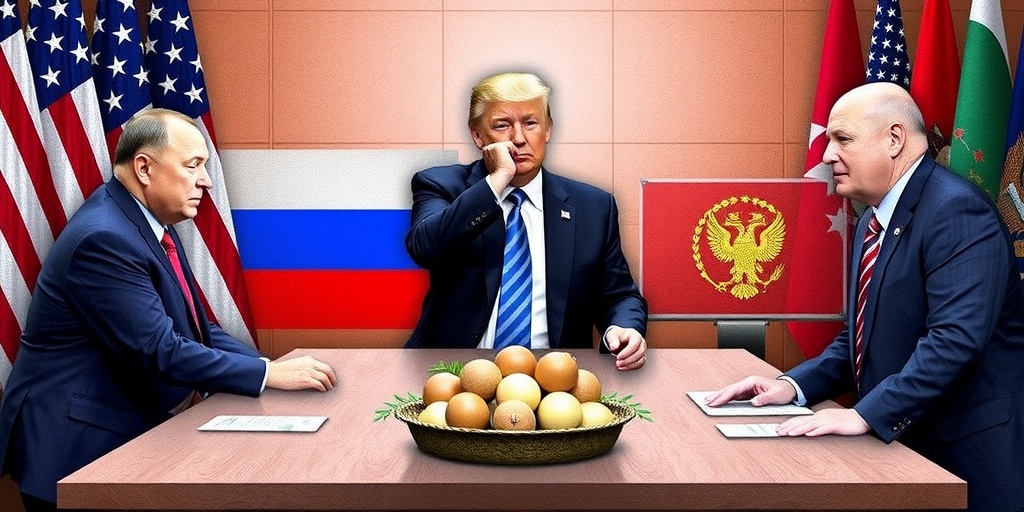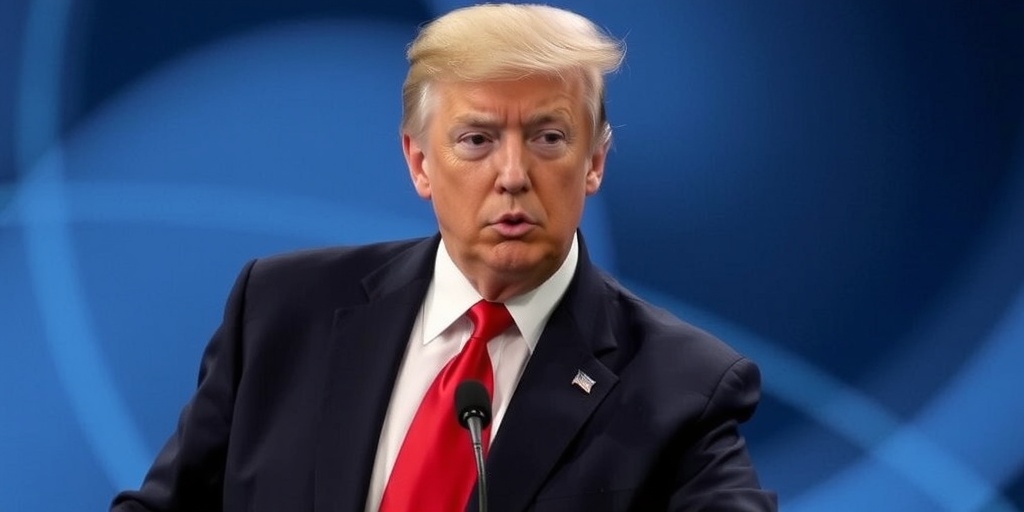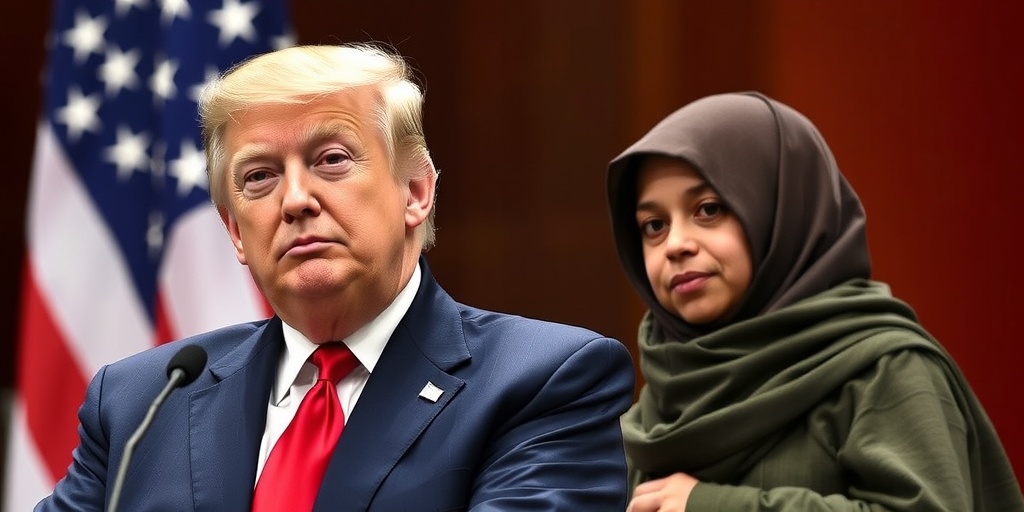Now Reading: Trump’s Era: America’s Unexpected Allies – Russia, North Korea, and Belarus
-
01
Trump’s Era: America’s Unexpected Allies – Russia, North Korea, and Belarus
Trump’s Era: America’s Unexpected Allies – Russia, North Korea, and Belarus

Trump’s Shift in Foreign Policy: A Move Towards Autocrats and Away from Allies
In a notable shift in foreign policy, President Donald Trump has recently made headlines by redefining America’s stance on the global stage. Following his return to office, Trump’s recent actions—particularly a controversial vote at the United Nations—have signaled a dramatic pivot towards aligning the United States with some of the world’s most rogue states, such as Russia, North Korea, and Belarus, while distancing itself from long-standing allies including Britain, France, and Germany.
This week, on the third anniversary of Russia’s invasion of Ukraine, the U.S. administration backed a U.N. General Assembly resolution that condemned those actions, a move that raised eyebrows and sparked intense debate among political analysts and world leaders alike. Joining Trump in this decision were nations often regarded as international pariahs. Conversely, traditional allies—countries that have stood by the U.S. since World War II—found themselves on the other side of the voting tally.
Trump’s actions have created a stark contrast in how the U.S. engages with its historical partners compared to states with questionable reputations. By siding with autocratic governments, he is simultaneously elevating their standing within international discourse while undermining decades of diplomatic relations with key global players.
The implications of this new approach are profound and could reshape American foreign policy significantly. Leaders from Poland, France, and Britain are reportedly heading to Washington soon in an effort to persuade Trump to reconsider his alignment with adversarial states. Their task, however, may prove challenging. Many in the international community are coming to the stark realization that Trump’s foreign policy will not align closely with their democratic values or strategic interests.
This new pivot hints at a potential fragmentation of traditional alliances. If the U.S. continues to nurture its ties with the likes of Russia and other authoritarian regimes, European nations, Canada, and crucial allies in Asia, such as Japan and South Korea, may be compelled to explore new alliances and partnerships to secure their own national interests.
Critics have not been shy about voicing their concerns. Among them, Susan E. Rice, former U.N. ambassador and national security advisor under President Barack Obama, accused Trump of performing a "transparently and unabashedly" pro-Russian agenda. "We all have to ask ourselves why?" she stated, questioning the motives behind Trump’s decisions.
European leaders expressed disbelief at the recent U.S. vote at the U.N. General Assembly, which they interpreted as a sign that America is moving away from its historical commitments. The U.S. does not typically find itself voting alongside countries like North Korea or Belarus, underlining the unprecedented nature of Trump’s current approach to foreign policy.
Even within Trump’s own party, discontent is brewing. Some Republican lawmakers are beginning to voice their criticism publicly. Senator John Curtis of Utah openly expressed his concerns about aligning the U.S. with countries like Russia and North Korea, emphasizing it contradicts American ideals of freedom and democracy. Nebraska Representative Don Bacon also voiced his discontent, stating that the administration’s choices made a clear statement of alignment with aggressors rather than victims of aggression.
In defense of Trump, his advisors have suggested that he is pursuing a complex negotiation strategy to ultimately bring an end to the conflict in Ukraine. They argue that by fostering relationships with all parties, Trump may be in a better position to facilitate a cessation of hostilities.
The reality, however, appears more complicated. Trump’s reluctance to criticize Russia or its president, Vladimir Putin, stands in stark contrast to the difficult relationship he has fostered with Ukraine. His offhand comments about Ukraine’s leadership—including labeling President Volodymyr Zelensky a "dictator without elections"—have left many in both Ukraine and the U.S. concerned about the implications of such rhetoric.
The juxtaposition in Trump’s approach raises questions about America’s future role in global geopolitics. Normally, the U.S. finds itself at odds with nations like Syria or North Korea during crucial votes; however, Trump’s current stance suggests a significant departure from that norm. Notably, past U.S. administrations have typically managed to navigate relationships with unsavory states cautiously and strategically, avoiding overt hostilities with long-standing allies.
Moreover, Trump’s earlier admiration for autocrats is well-documented and troubling to many. Throughout his presidency, he has made a point of expressing respect for figures like Putin and Kim Jong-un, while his appreciation did not extend to leaders of democratic nations. Recently, he hosted French President Emmanuel Macron but appeared largely unmoved by his attempts to persuade Trump to adopt a more traditional stance on the importance of aiding Ukrainian sovereignty.
As Trump prepares to meet with British Prime Minister Keir Starmer, eyebrows are raised regarding the former alignment of the Atlantic alliance. European leaders are wary, bracing for another round of diplomatic discussions that may yield little hope of restoring that partnership in the face of Trump’s newly adopted stance.
In conclusion, as Trump forges a new path in U.S. foreign policy—one that embraces autocrats and distances itself from longstanding allies—the global political landscape stands poised for upheaval. Whether this course of action will meet with success or ultimately lead to America’s isolation remains to be seen, but the ramifications of this historic shift will undoubtedly echo throughout international relations for years to come.
Stay Informed With the Latest & Most Important News
Previous Post
Next Post
-
 01New technology breakthrough has everyone talking right now
01New technology breakthrough has everyone talking right now -
 02Unbelievable life hack everyone needs to try today
02Unbelievable life hack everyone needs to try today -
 03Fascinating discovery found buried deep beneath the ocean
03Fascinating discovery found buried deep beneath the ocean -
 04Man invents genius device that solves everyday problems
04Man invents genius device that solves everyday problems -
 05Shocking discovery that changes what we know forever
05Shocking discovery that changes what we know forever -
 06Internet goes wild over celebrity’s unexpected fashion choice
06Internet goes wild over celebrity’s unexpected fashion choice -
 07Rare animal sighting stuns scientists and wildlife lovers
07Rare animal sighting stuns scientists and wildlife lovers





















